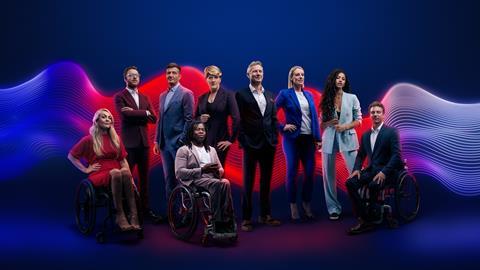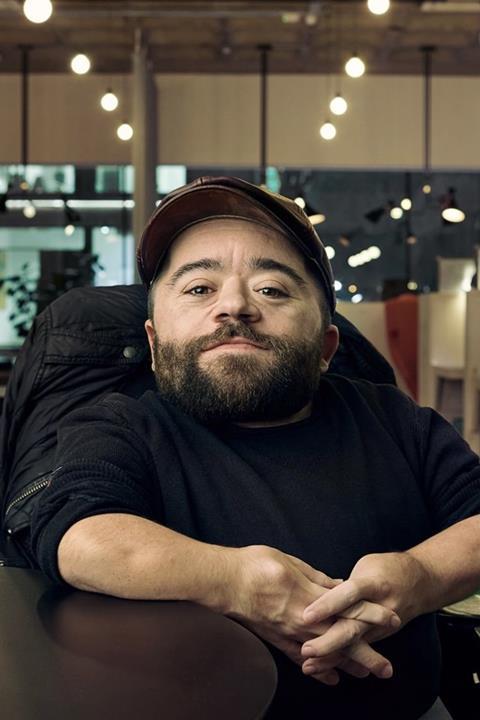Purple Goat global client director Dom Hyams has been impressed by Channel 4 but thinks more needs to be done

We have officially begun the countdown to the Paris 2024 Paralympic Games - the pinnacle of sporting prowess. It’s our chance to marvel at the incredible physical feats of the world’s most accomplished athletes. And because it’s on the world stage, by extension it becomes an opportune moment to talk about disability representation and inclusion.
But I’m bored of waiting every four years for disability to be a topic of conversation. Because for almost a quarter of Brits who live with a disability, it is a topic of conversation for us every day.
When people ask me why disability representation is important, I point them towards recent findings like those from the Equality and Human Rights Commission (EHRC) last year which showed that the UK disabled community continues to face discrimination, despite a 2016 UN inquiry finding the UK government guilty of systemic violations against disabled people. Or I share with them anecdotal examples of prejudices or instances of ableism I experience on a far-too-often basis.
A big part of my job is banging on doors (not always literally) urging brands to take disability representation seriously. And whenever there is a big global event, like the Paralympics, my job at starting those conversations becomes a little bit easier.
The big (broadcast) moment
The eyes of the world are focused on disability and inclusion more during the Paralympic Games than any other time throughout the year. And for most of us, our eyes inevitably turn to our TV screens when it comes to watching the Games live - Tokyo 2020 for instance saw 20 million people tuning in.
We know that positive representation can shift public opinion for the better and create greater understanding and appreciation between cultures and communities. We’ve seen great strides taken in gender and ethnicity representation, but disability still remains an afterthought in many cases.
We are very lucky in the UK to have such fantastic coverage from Channel 4 who, since 2012, have committed to bringing us a depth of sporting coverage to rival the quality and quantity we see from the Olympics.
Because live TV is so central to our experience of the Paralympics, it is just as important we also see disability represented in the broadcast of the Games, too.
Channel 4 have emerged as a trailblazer in inclusive broadcasting. Last time out, Channel 4 committed to 70% of its Paralympics presenting team being disabled. One year later at the Winter Paralympic Games, 100% of the presenting and punditry team were disabled, a global first for any broadcaster at a world sporting event.
Whilst disabled presenters like Sophie Morgan, Ade Adepitan, and JJ Chalmers front coverage of the Games, fortunately we are starting to see opportunities offered to fantastic talent outside of games-time events. From Crufts to crypto, disabled presenters are thankfully being recognised as great presenters, and representation beyond the major events is key to move beyond this feeling of tokenism.
Work behind the scenes
I know from first-hand experience, having worked on the production of Channel 4’s coverage of the London 2012 Olympic and Paralympic Games, that an incredible amount of effort goes on behind the scenes to make the broadcast look so seamless and to ensure everyone back home doesn’t miss out on a second of the action.
But after spending time in TV, I quickly realised live broadcasting wasn’t going to be the easiest career path for me. I was having to be lifted up and out of my wheelchair as OB trucks at the time just weren’t accessible for me. I naturally moved into magazine-style formats where much of production was office-based.
Unfortunately, my experience is not unique. Many other disabled individuals still face obstacles in accessing opportunities in broadcasting. A 2022 report from Creative Diversity Network revealed that representation off-screen has been static or in decline, predicting it will take until 2041 for disabled talent to be truly representative in TV.
Without changes at the roots, in production, the editorial input will continue to lag behind fulfilling these needs.
Nothing about us without us
The state of disability representation in the media is an ongoing challenge. In our industry, in advertising, only 4% of TV adverts showcase disability.
This year’s Paralympic Games are an incredible opportunity to capitalise on the groundswell of inclusive conversation and for us to create a more progressive dialogue around disability, discussing more nuanced issues affecting the disabled community, and upskill the population at the same time - all whilst showing the fantastic, heart-stopping sporting action for what it is.
We don’t want to hit people with the stick, we want to give them the carrot. Inclusive broadcasting is an opportunity to make incredibly engaging, forward-thinking content. Whether you’re a TV producer or a creative director, don’t be afraid to not have all the answers, as we are all constantly learning how to evolve our craft over time.
Come and speak to the community, seek expert insights from those with lived experience and how that can compliment your strategy seamlessly. True inclusivity will always be an iterative process. I’m excited to see the conversation this summer move forward, whilst also marvelling in the magic of the Paris 2024 Paralympics sporting action.

Dom Hyams is global client director at Purple Goat





No comments yet